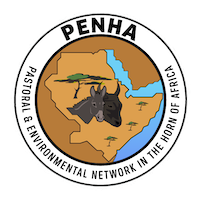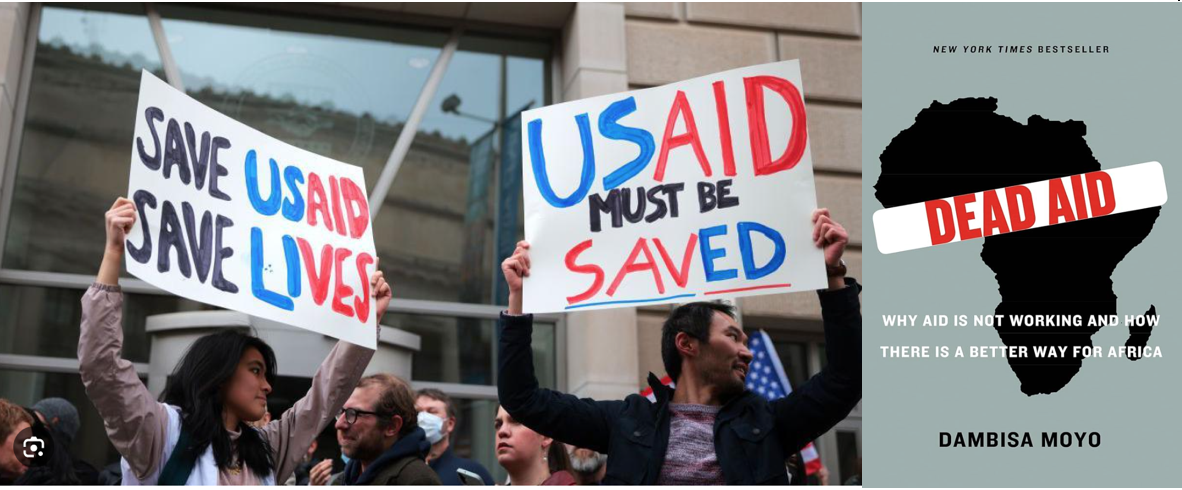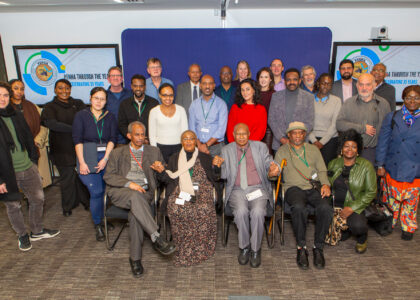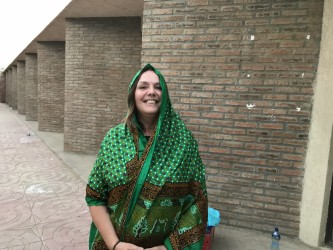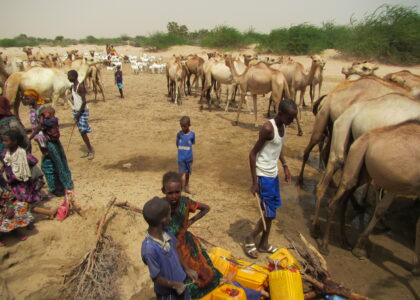The 7th Oxford Desert Conference was successfully held on March 20th and 21st, 2025, at the Department of Geography and Environment, University of Oxford. The department’s director, Professor Giles Wiggs, delivered the opening speech, highlighting how the unique conference evolved during the last 15 years and brought academicians, practitioners, and native people together to shape global desert development agendas.
On the second day of the conference, PENHA, in collaboration with the DoGE, organised a roundtable, titled Pastoral Systems and Reductions in Aid: Fallout from International Aid Cuts, Challenges and Prospects, focusing on the topical agenda of aid and how this can impact communities in desert ecosystems. The roundtable has brought excellent speakers with extensive experience working with humanitarian and development assistance in Africa, Asia and beyond. The speakers were Angela Raven-Roberts (PhD), Sergio Magnani (PhD), Ruta Nimkar (PhD Researcher) and Moffatt K. Ngugi (PhD). The Roundtable was chaired by Bereket Tsegay (PhD).

Dr. Angela Raven-Roberts has shared her more than three decades of experience working in humanitarian and development-focused aid by bringing specific cases of USAID and other donor interventions among the pastoral communities. In her speech titled ‘Implications and Challenges of USAID Cuts – Ethiopia‘, she gave a snapshot of the over 120-year diplomatic and development engagement of USAID in Ethiopia but emphasised how long such support would need to continue in assisting the communities to be self-reliant. Ethiopia with a total of $360 billion total support, Dr Raven-Roberts was critical of havoc created by the sudden stoppage of USAID megaproject/programmes support in Ethiopia, including the Resilience in Pastoral Areas (RiPA) with a fund of $33m, that potentially leave millions who rely on food aid and other support packages. She underscored the need for a new form of partnership and funding models.
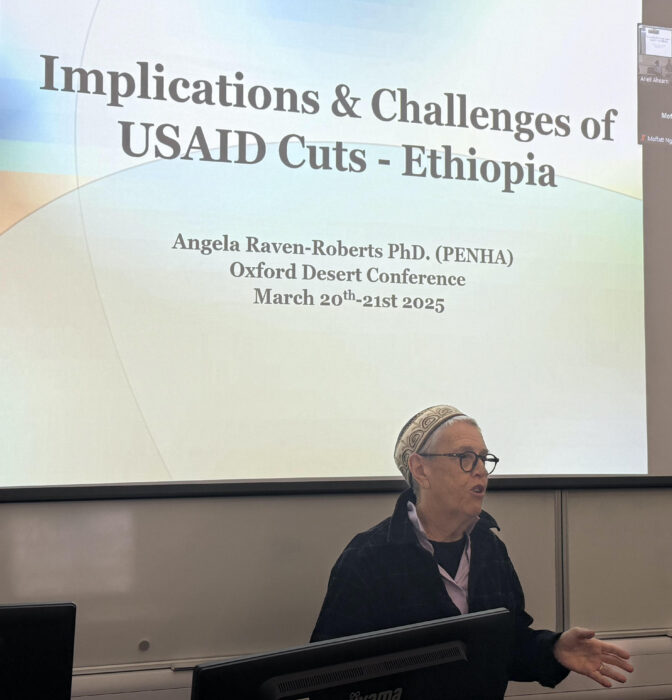
Dr. Angela Raven-Roberts
Dr. Sergio Magnani has brought his decades-long experience working in West Africa.
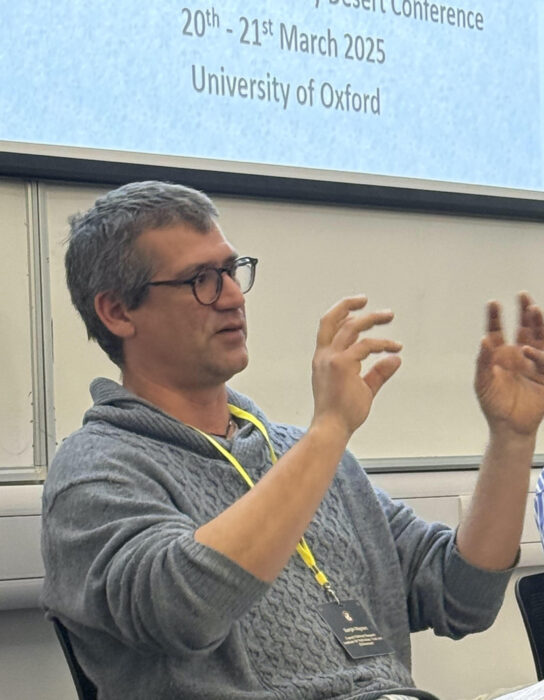
Dr. Sergio Magnani
Ruta Nimkar (a PhD Researcher at the University of Oxford) has shared her experience working with several NGOs, consulting, dealing with multiple donors, and understanding how such a complex aid system works. Nimkar has emphasised the politics around aid and its usage works and the challenge between bringing tangible outcomes and genuine impacts rather than fulfilling donors’ technical and managerial requirements.
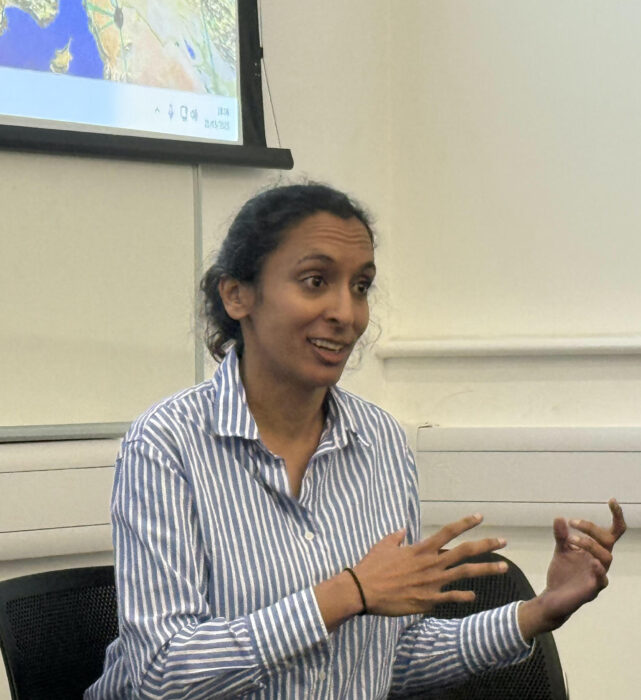
Ruta Nimkar (a PhD Researcher at the University of Oxford)
Dr Moffatt K. Ngugi has shared his reflections about the aid agenda and explained what worked and didn’t, specifically by bringing specific cases from East Africa. His reflection titled as ‘Personal reflections from a Development Professional: Exploring the implications of aid cuts and sustainable alternatives’, provided an overview of the existing contemporary humanitarian and development aid models, their relevance to the pastoral and agro-pastoral communities and the recent trends of aid cut by the USAID, the UK and EU donors. He highlighted that aid has contributed to providing emergency relief, multi-sectoral social service support, improving governance, policy reforms and capacity building, and creating employment opportunities and market linkages. However, he noted, such intervention has brought its own drawbacks, including the risk of long-term dependency, inefficient and misallocation of resources, and the political influence shaping aid distribution.
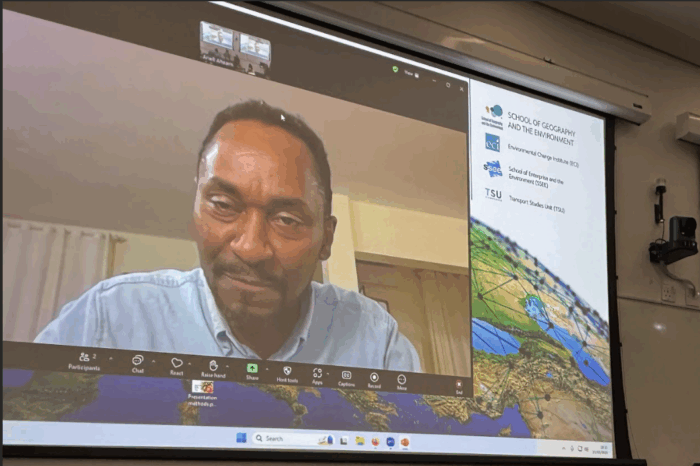
Dr Moffatt K. Ngugi
Highlighting the recent trends on aid, Dr Ngugi said the US administration, under the second presidency of Trump, aims to absorb USAID into the State Department; the UK’s redirection of funds from aid to defense; and the EU budget reallocation due to the mega crisis of Ukraine, Gaza and Syria. He calls for such shifts to lack an exit strategy and needs a gradual transition rather than abrupt aid cuts. He emphasized on looking at the following alternative models for development: Blended Finance & Impact Investments: Attracting private capital for social impact; Public-Private Partnerships (PPPs): Ensuring service delivery sustainability; Strengthening Local Economies: Supporting Micro, Small, and Medium Enterprises (MSMEs) and Sovereign Wealth Funds & Infrastructure Investments (Examples from Botswana, Namibia, and South Africa). His presentation ended with these three key suggestions for aid to have a sustainable future:
The Way Forward – A Sustainable Future
- Aid should be a tool, not a permanent solution.
- Encourage regional economic integration and trade-based development.
- Strengthen governance and local ownership of development initiatives.
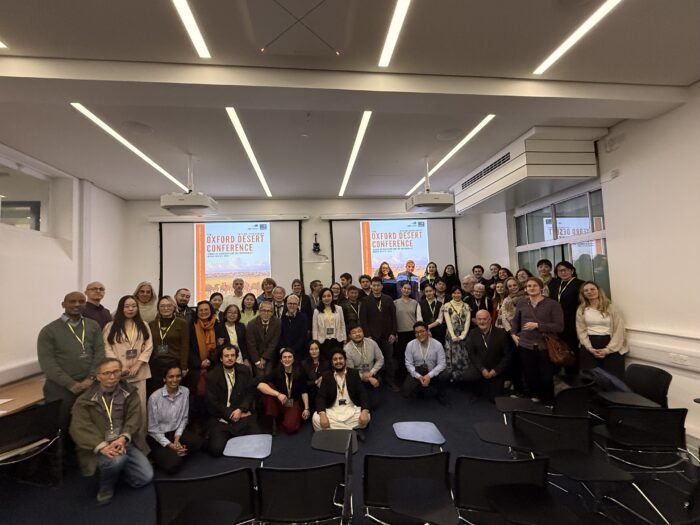
7th Oxford Desert Conference 2025 Participants
At this conference, over 64 speakers, researchers, and panellists shared their research outputs, findings, and reflections vital to the communities and their desert environments. Indigenous people from Mongolia and Kenya expressed their concerns regarding climate change, environmental challenges, livelihood resilience, and the role of indigenous knowledge systems in addressing these challenges.
PENHA expresses gratitude to the DoGE staff, especially Ariell Ahearn, Troy, and the speakers, for their remarkable collaborative efforts in ensuring the conference’s success.
Roundtable discussants’ brief bios:
Discussants
Angela Raven-Roberts is an independent consultant and researcher, PENHA Senior Advisor and formerly an affiliate at the Department of Education, University of Oxford, UK. She works on capacity development, specialising in gender, youth and livelihoods in emergencies; post-crisis recovery; pastoral livelihoods in change; and the role of national civil services in disaster preparedness and is reviewing current educational policies for pastoral communities in the Horn of Africa. Angela was formerly the regional chief of emergencies at UNICEF Geneva and has more than 30 years’ experience in humanitarian and development work at the UN with NGOs and in academia.
Moffatt K. Ngugi (PhD) is a geospatial ecologist specializing in rangeland management, land resources, and agroecology. He studied at the University of Nairobi, Ghent University, and Colorado State University, and has worked globally, collaborating with stakeholders to tackle climate change and promote sustainable development.
Ruta Nimkar (DPhil Researcher and Director of Meraki Labs) is an experienced humanitarian and migration professional. She has held regional and country senior management positions and has consulted for donors, UN agencies and NGOs. Ruta was the Country Director for the Danish Refugee Council in Iran. In addition to her DPhil in Migration Studies at the University of Oxford, she is the Director of Meraki Labs, a consulting company aiming to ensure that refugees co-author all work and migrants and people from conflict-affected communities. Ruta has researched mixed migration routes and smuggling networks in Central Asia, the Horn of Africa and West Africa. Ruta’s thesis focuses on smuggling ecosystems and how they engage with national and international political dynamics.
Sergio Magnani (PhD in Social Anthropology from EHESS) is a post-doctoral researcher at the French National Research Institute for Agriculture, Food and Environment, and a researcher associate at the French Research Institute of Development. Over the last fifteen years, his work has been focusing on dynamics of social change in rural and pastoral societies in West Africa and, more recently, in the Mediterranean, with regard to frictions with policy and development frameworks and their effects on local socio-environmental relations and socio-political systems.
Terrence Hay-Edie (PhD) is a Programme Advisor (Biodiversity) for the UNDP-implemented Global Environment Facility Small Grants Programme (SGP), and Programme Manager for the Global ICCA Support Initiative funded by the German Federal Ministry of the Environment. Since its inception in 1992, the SGP has provided cumulative funding of over $640 million to civil society organizations in 128 countries worldwide to develop innovative nature-based solutions to address the inter-linked crises of biodiversity loss, climate change, and land degradation. He holds a PhD (Social Anthropology) from the University of Cambridge.
Chair:
Bereket Tsegay (PhD) is a Senior Researcher and Policy Analyst at PENHA, a Research Associate at SOAS, University of London, and a Non-Resident Fellow at the African Studies Centre in Leiden, Netherlands. He obtained his PhD in Development Studies from SOAS. His research interests encompass conflict analysis, climate change, migration, policy, and governance analysis.
